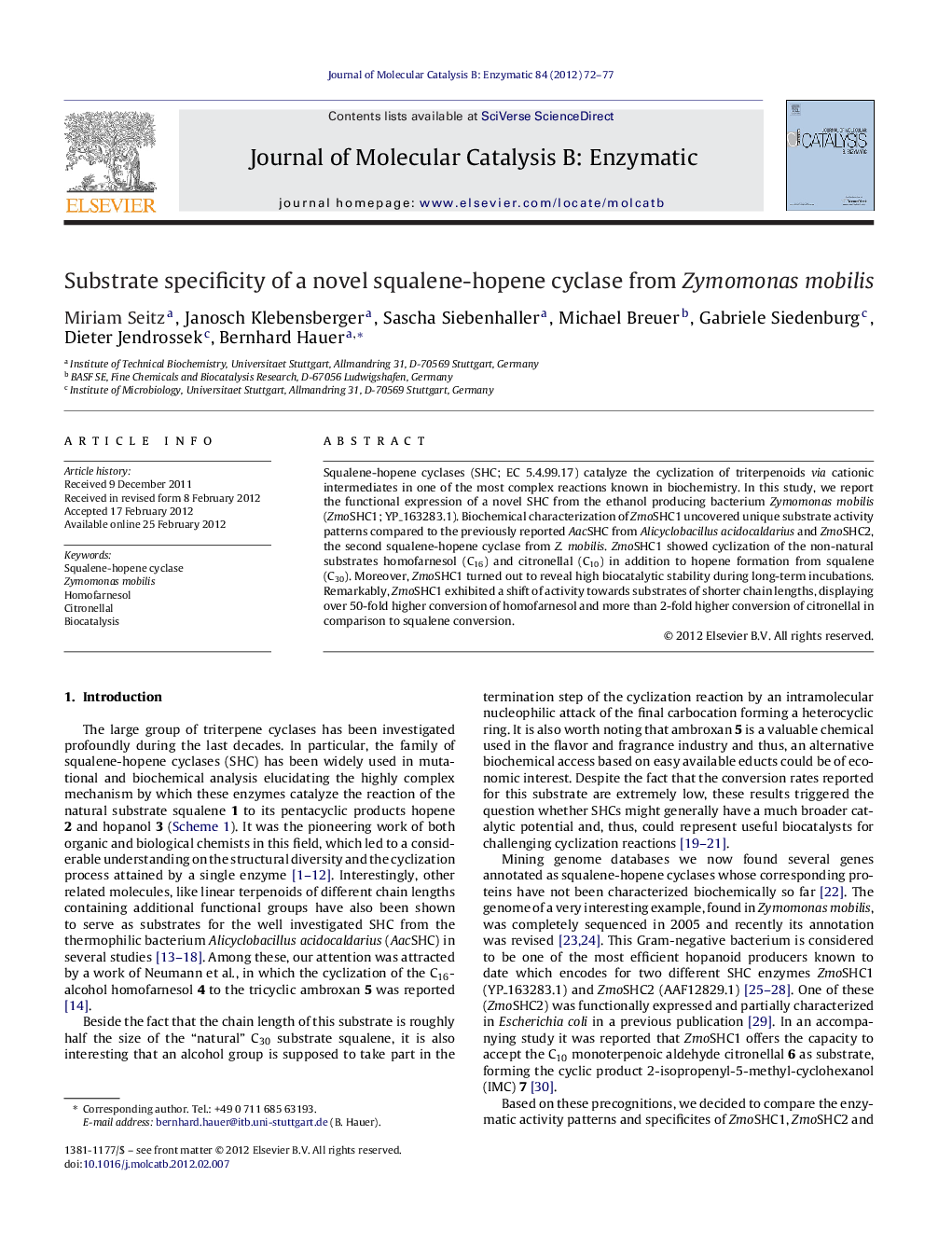| Article ID | Journal | Published Year | Pages | File Type |
|---|---|---|---|---|
| 69890 | Journal of Molecular Catalysis B: Enzymatic | 2012 | 6 Pages |
Squalene-hopene cyclases (SHC; EC 5.4.99.17) catalyze the cyclization of triterpenoids via cationic intermediates in one of the most complex reactions known in biochemistry. In this study, we report the functional expression of a novel SHC from the ethanol producing bacterium Zymomonas mobilis (ZmoSHC1; YP_163283.1). Biochemical characterization of ZmoSHC1 uncovered unique substrate activity patterns compared to the previously reported AacSHC from Alicyclobacillus acidocaldarius and ZmoSHC2, the second squalene-hopene cyclase from Z. mobilis. ZmoSHC1 showed cyclization of the non-natural substrates homofarnesol (C16) and citronellal (C10) in addition to hopene formation from squalene (C30). Moreover, ZmoSHC1 turned out to reveal high biocatalytic stability during long-term incubations. Remarkably, ZmoSHC1 exhibited a shift of activity towards substrates of shorter chain lengths, displaying over 50-fold higher conversion of homofarnesol and more than 2-fold higher conversion of citronellal in comparison to squalene conversion.
Graphical abstractFigure optionsDownload full-size imageDownload as PowerPoint slideHighlights► We cloned and heterologously expressed a novel squalene-hopene cyclase (SHC) of the ethanol producing bacterium Zymomonas mobilis (ZmoSHC1). ► We established biotransformation setups for three model reactions using three SHCs as biocatalysts. ► Unexpected activity of ZmoSHC1 towards substrates of shorter chain lengths as well as high biochemical stability could be shown.
